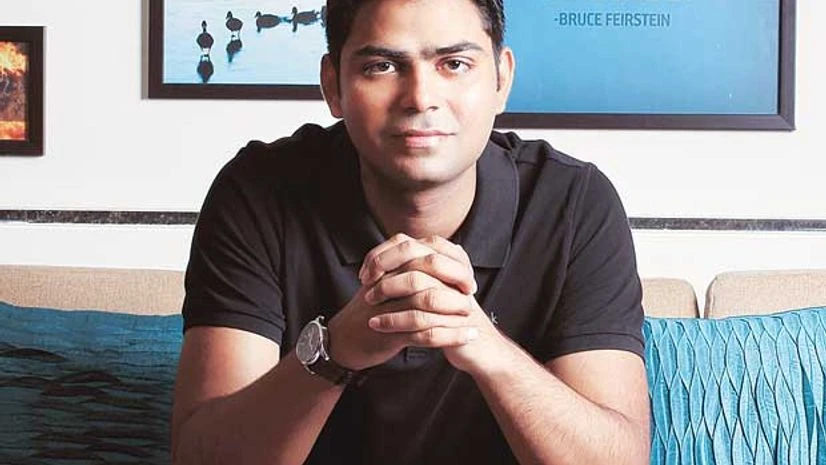For nearly five years, Rahul Yadav's personality was indistinguishable from Housing.com, the real estate portal he co-founded along with 11 other batchmates from the Indian Institute of Technology Bombay. He built the company from scratch, putting together a team of like-minded people.
As Housing took off, he hired young graduates in senior positions and designed the interiors of the office in a way that it appeared and felt like a college campus. Far from a boxed-in working place, he emulated the Silicon Valley format of a start-up office that looked playful and peppy. The 12 co-founders held key roles in the company and Yadav led as CEO by creating a shared vision. This meant everyone across the company was on the same page.
| REBUILDING HOUSING |
|
However, Yadav's controversial exit last year has reset the pace of Housing's evolution.
After he was sacked by the company's board, a few people left in solidarity with him. As Yadav was shown the door, Housing's lead investor, SoftBank, took control and started to run the company in its own way. Currently, there are just three of the original 12 co-founders left in the company, and only one co-founder, Snehil Buxy, holds a role of major importance.
Making house hunting fun
When the outspoken Yadav had started Housing, his sole focus was to eliminate the need for physically dealing with brokers. His intention was to make Housing the Google of real estate. He often cited the Santa Clara-based company as an idol when he held court with employees and journalists.
In every story, he narrated the process of starting the company with one anecdote. He was looking for an apartment to rent, didn't want to deal with brokers and found an idea: Housing.com. He began to expand on the idea: What if people wanted to buy apartments? What if they wanted long stays? As the horizon expanded, the list of segments he tried to target grew longer. He realised that consumers may want to, one day, finalise the deal on renting or buying an apartment they were interested in while sitting at their computers. So, he gave them a virtual tour into apartments.
His business model was simple: the rent seekers would bring in the numbers and the home buyers the revenue.
However, after Yadav left, SoftBank decided to get rid of everything but buying and selling of property. It started to look closely at the monthly burn and made big job cuts. Since July last year, over 700 people have been told they are excess to requirements.
"There was a reason that renting was shelved. It needed as much resource as selling and the payoffs were smaller. Also, the conversions - traffic versus realisations - were very small. It just wasn't worth it anymore," says a highly placed source who was privy to the decision making.
The model has evolved dramatically. From a pure listing play, the company has pivoted to a lead generation-cum-transactional model. However, even as the company has a free run, the constant churn in staff is hurting it.
Many builders have started to lose faith in the company. Soon after Jason Kothari was made the CEO, one of Housing's biggest customers called the company "cocky". "There is a lack of leadership within the company and it is struggling to come through on its promises," he said.
In March, the only person from the original Housing team on the board, Advitiya Sharma, resigned from the company as well. He has started an edu-tech company, Genius Schools, leaving behind the ghosts of Housing.com. Both the original board members-Yadav and Sharma-are now gone.
Filling the void
The company, however, is trying to mend its lack of leadership by making high-profile appointments. In April, it got former 99acres business head, Vineet Singh, as an advisor who invested an undisclosed amount in the company. In May, Ashish Laghate, who has previously worked with Time, Washington Post and Amazon, was brought in as assistant vice-president (product). The appointments are part of the company's efforts to infuse leadership and experience and fill the vacuum left by its founders.
Housing executives dismiss the exits as par for the course in start-ups. "It was a good time for several of the founders to move on. They had spent many years building the product, establishing a brand but then the company needed a set of heads who would help it reach the next level. Perhaps, the founders needed more learning before they took on that task," says another senior employee at the company.
However, not much has changed for Housing on the revenue front. Housing is still struggling to make money, say sources. Despite having over a million listings, the company does not make the conversions it needs to turn profitable.
Meanwhile, Yadav is struggling to find his footing after Housing too. He recently said he was going to abandon the data analytics company he was working on and may go back to rental business . Housing may have to contend with competition from the man who started it.

)
